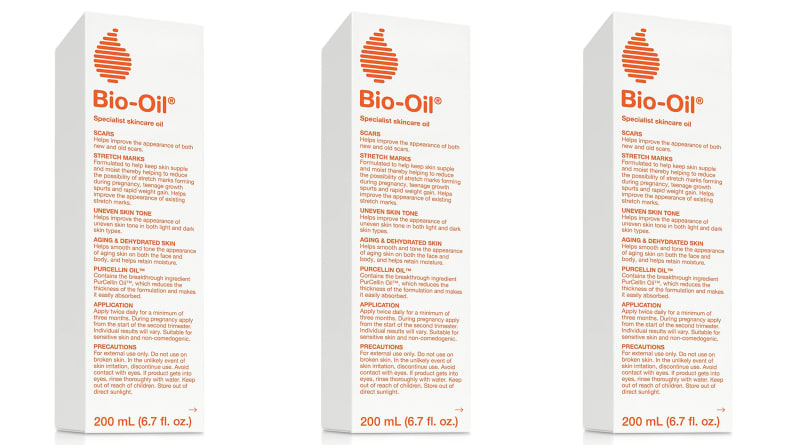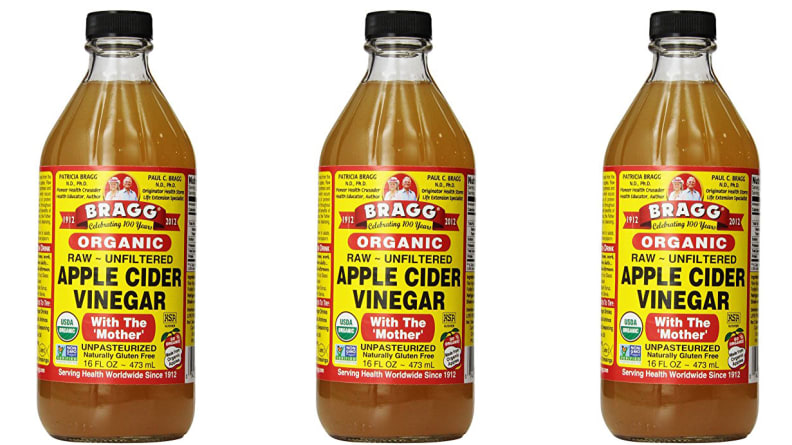Be careful, you're treating your sunburns wrong
The do's and don'ts of treating a burn
Products are chosen independently by our editors. Purchases made through our links may earn us a commission.
After a long winter indoors, we're all ready to spend time outside in the sun. A little vitamin D is good for boosting your mood and your immune system function, but if you aren’t careful, too much time in the sun could leave you burned—literally.
Beyond the pain, heat, and discomfort that comes with a sunburn, your risk for melanoma doubles if you've had more than five sunburns. That’s within your entire lifetime, not just one summer. Yikes.
Unsurprisingly, your best course of action is to avoid a sunburn altogether. Daily use of SPF 15 or higher reduces your risk of developing melanoma by 50%—as long as you apply your sunscreen correctly. But, accidents happen and so do sunburns. If you get burnt this summer, be sure to avoid common mistakes and take the right steps to heal quickly and safely.
Don’t: Stay in the sun once you're burnt
Protect your skin so your sunburn doesn’t get worse. “Some people stay out in the sun to ‘even out’ the burn. With a burn, the last thing you should be doing is exposing skin to UV/UB rays,” says Dr. Dendy Engelman, a dermatologist at Medical Dermatology and Cosmetic Surgery Centers. The best course of action is to spend some time indoors but, when you are outside, cover up, continue to apply sunscreen throughout the day, and wear sun-protective clothing.
Do: Use quality, healing products instead of aloe

“Applying products that have chemicals and irritants can cause more inflammation to the skin," says Engelman. She recommends avoiding makeup, products with fragrances, exfoliators, and your Clarisonic Mia. "It is more important to focus on products that soothe and combat damage.”
Engleman recommends antioxidants like vitamin C serums that protect the skin from free radicals (the scientific word for atoms that damage cells) and moisturizers to avoid dry skin and pronounced lines and wrinkles.
Engleman suggests treating your sunburn with Bio-Oil Multiuse Skincare Oil. “It contains Vitamin E to neutralize free radicals, and it’s also packed with vitamin A (which works with the skin to promote cell regeneration), lavender oil, chamomile oil, calendula oil, and rosemary oil that help invigorate and condition the skin, ultimately providing calming and hydrating benefits,” she says.
Don’t: Go for a swim
When you’re burnt, it’s tempting to jump into the pool or ocean to cool off, but it can do more harm than good. “You can continue to get sun exposure even in the water, worsening the burn,” says Engelman, “Furthermore, the salt or chlorine can dry out the skin and cause irritation.” You’re better off staying indoors until your burn has a chance to heal a bit.
Do: Take a soak in apple cider vinegar

Instead of hopping in the pool, Engelman recommends taking an apple cider vinegar bath. Pour one or two cups of apple cider vinegar into your tub after it’s filled with water. “After soaking for 10 minutes, the apple cider vinegar will have helped restore your skin’s pH levels and your skin will feel cool and soothed,” says Engelman. “The anti-inflammatory properties of apple cider vinegar soothe irritated skin, and acetic acid softens skin to help dead cells slough off.” Not only will a cool bath feel soothing, but it will heal you faster.
Don’t: Peel or exfoliate flaking skin
It’s tempting as it is sometimes, and it won’t help your skin heal. “It will only further traumatize the skin and may lead to scarring,” says Dr. Monique Chheda, a dermatologist at Maragh Dermatology in Maryland.
And step away from your favorite exfoliants. “Peeling skin and blister roof serve as a natural bandage for the underlying healing skin, so leave it in place. Once the skin underneath has healed the body will naturally shed the damaged layer,” she says.
Do: Drink plenty of fluids to rehydrate
Proper hydration is important in any season, but it’s particularly crucial when you’ve gotten singed by the sun. “A sunburn can draw fluid to the skin’s surface and away from other areas of the body, causing dehydration,” says Dr. Joel Schlessinger, an Omaha-based dermatologic surgeon. “As your skin begins to recover, be sure to stay hydrated by drinking plenty of extra fluids, including water and sports drinks.”
Don’t: Ignore the symptoms of a bad burn
If you have a serious burn, it’s important to know when see a doctor. While most sunburns may be treated at home—even if they are accompanied by blisters—there are certain circumstances that require medical attention. “If blisters cover more than 20% of the body, seek a physician’s care as soon as possible,” says Schlessinger. You should also see a doctor if your sunburn is accompanied by a fever and chills.
